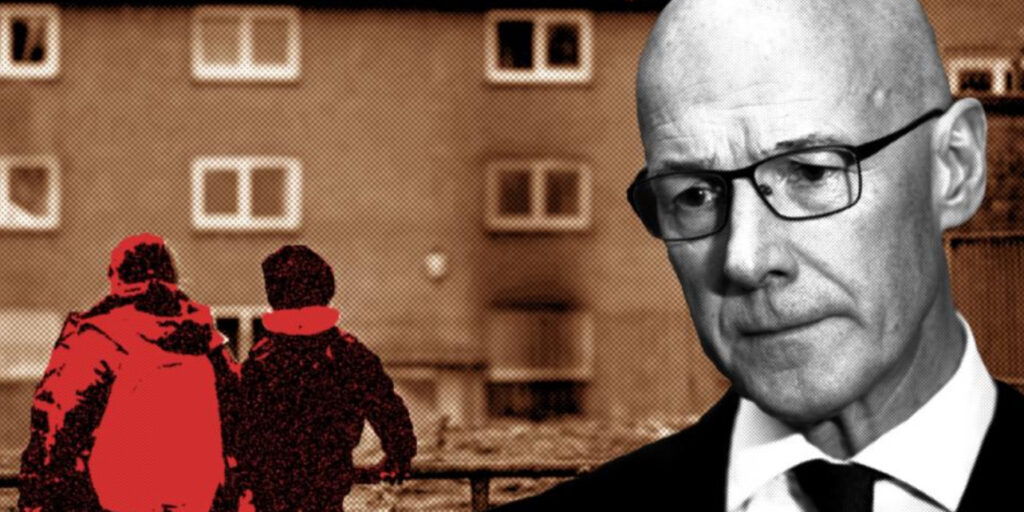Councils across Scotland have committed nearly 19,000 legal breaches in their duty to provide temporary accommodation for homeless individuals, including children and pregnant women, over the past six years.
The Herald reveals that a record 7,915 of these breaches occurred in 2023/24 alone—a staggering 18-fold increase compared to the previous year.
Glasgow at the Centre of the Crisis
Glasgow accounted for over three-quarters of the breaches in 2023/24, recording 6,260 cases, compared to fewer than four the previous year.
This comes three years after the Scottish Housing Regulator found the council had failed in its legal duties by not providing sufficient temporary accommodation, even before the COVID-19 pandemic.
The city declared a housing emergency in November 2023 but continues to grapple with skyrocketing demand.
Homelessness applications in Glasgow rose by nearly 20% in 2023, forcing many, including vulnerable children, to endure prolonged stays in unsuitable temporary accommodation such as bed and breakfasts.
Broader Failures Across Scotland
In total, 11 of Scotland’s 32 councils breached laws requiring temporary accommodation for those assessed as unintentionally homeless. Edinburgh recorded 1,515 breaches in 2023/24—more than triple the previous year’s figure of 420. Fife saw a nearly fivefold increase, rising from 25 breaches to 115.
The Scottish Housing Regulator has described the situation as a “systemic failure” in some local authorities, warning of “heightened risks” in others. With homelessness applications rising by nearly 4,800 over the past four years, campaigners argue that councils are struggling to cope with overwhelming demand due to a lack of affordable housing.
Calls for Legal and Financial Accountability
Advocacy groups are urging stricter penalties for councils failing to fulfil their obligations.
The Scottish Tenants Organisation (STO) called for heavy fines to hold councils like Glasgow accountable, accusing the regulator of being “toothless and weak.”
Living Rent, a tenants’ rights group, criticised both councils and successive governments for exacerbating the housing crisis through inadequate funding and lack of policy action.
Sean Clerkin of the STO demanded financial penalties to deter further breaches, stating, “Glasgow should be made an example of.” Living Rent chair Aditi Jehangir emphasised the urgent need for social housing, rent controls, and bringing empty homes back into use to address the crisis.
Government and COSLA Responses
The Scottish Government defended its record, highlighting £42 million in additional funding for 2024/25, targeted at areas with the greatest temporary accommodation pressures.
However, it acknowledged the need for longer-term solutions, including building new social and affordable homes and acquiring vacant properties.
The Convention of Scottish Local Authorities (COSLA) cited resource limitations and supply shortages as significant barriers, with 13 councils, including Glasgow, formally declaring housing emergencies. COSLA leaders are exploring strategies to work with the Scottish Government to address the crisis.
An Ongoing Crisis with No Easy Solutions
Despite efforts to mitigate homelessness, the number of children affected continues to rise.
An estimated 18,400 children were included in the 64,000 Scots seeking homelessness support in 2023, an increase of nearly 1,400 compared to pre-pandemic levels.
Campaigners warn that without substantial investment in housing and stricter enforcement of legal obligations, the crisis will deepen, leaving thousands of vulnerable people without safe, stable accommodation.
As Scotland faces this mounting challenge, all eyes are on the government and local authorities to deliver meaningful change.


